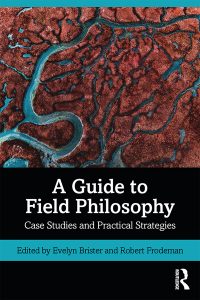 Rozzi R., M.T. La Valle, S. Russell, B. Goffinet & F. Massardo. 2020. Ecotourism with a hand-lens: a field environmental philosophy experience from the South of the world. Pages: 222–239. In R. Frodeman & E. Brister (eds.), A Guide to Field Philosophy. Case Studies and Practical Strategies (1st edition). Routledge, a Taylor and Francis Group. Link to book
Rozzi R., M.T. La Valle, S. Russell, B. Goffinet & F. Massardo. 2020. Ecotourism with a hand-lens: a field environmental philosophy experience from the South of the world. Pages: 222–239. In R. Frodeman & E. Brister (eds.), A Guide to Field Philosophy. Case Studies and Practical Strategies (1st edition). Routledge, a Taylor and Francis Group. Link to book
The chapters starts with: Earth is not only a biophysical entity; it is also a word that influences the way we understand and relate to the biophysical reality of the planet. Scientists often forget the gravity of words and focus on the biophysical reality. Conversely, philosophers often focus on examining the language of cultural reality, ignoring the biophysical realm. Biocultural ethics unites biological and cultural realities in one conceptual framework (Rozzi, 2001). In addition, it promotes a contextual and systemic approach that shows consideration for the vast biophysical and cultural diversity found in different regions of the world.
In this chapter, we focus on a transdisciplinary endeavor launched in 1999. This long-term project advocates for a biocultural perspective at the southern end of the American continent, in the Cape Horn County of Chile. A team of philosophers, scientists, artists, members of the Yahgan indigenous community, government authorities, Navy officers, schoolteachers, and members of the local community in the world’s southernmost city, Puerto Williams, created the Omora Ethnobotanical Park.1 This endeavor has resulted in changes in the local sciences, arts, and humanities curricula and educational activities at all levels of formal education, as well as with tourists, members of the public, and policymakers from inside and outside Chile.